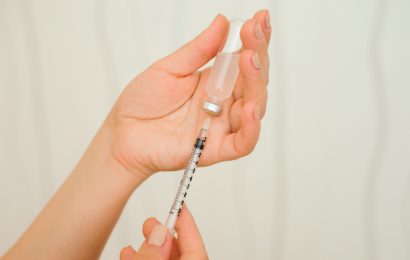Use of continuous positive airway pressure (CPAP) devices may help improve blood sugar levels in people with obstructive sleep apnea (OSA) and poorly controlled Type 2 diabetes, according to new research out of Spain. Approximately 29 million people in the United States have Type 2, and more than 18 million are living with sleep apnea.
Research has shown that obstructive sleep apnea — a condition in which breathing stops for 10 seconds or more during sleep, sometimes hundreds of times a night — is associated with an increased risk of Type 2 diabetes, worse blood sugar control, and heightened chance of cardiovascular death. CPAP is the leading treatment for sleep apnea, and involves a mask being worn during sleep that provides a flow of air into the nasal passage, keeping the airway open.
In a first-of-its-kind study to evaluate the effect of CPAP on blood sugar control, researchers looked at 50 people with both obstructive sleep apnea and poorly controlled Type 2 diabetes. The participants, who ranged in age from 18 to 80, were randomly assigned to either CPAP or no CPAP. The subjects did not change their diabetes medicines, diets, or levels of physical activity during the six-month trial (unless medically necessary).
The researchers found that those using CPAP experienced statistically significant improvements in insulin sensitivity at three and six months, and decreases in insulin resistance and HbA1c levels (a measure of glucose control over the previous 2–3 months) at six months. Those being treated with CPAP also had lower levels of certain inflammatory molecules and LDL (“bad”) cholesterol and higher levels of the hormone adiponectin, which is involved in regulating blood sugar levels. Based on data from previous studies, the authors suggest that the 0.4% average reduction in HbA1c seen in those using CPAP could equate to a roughly 6% to 8% decrease in cardiovascular risk and a 15% lower risk of microvascular complications.
“Early identification of OSA in patients with Type 2 diabetes, and assessment for metabolic abnormalities in those with OSA, could reduce the cardiovascular disease risk of patients with these chronic diseases,” according to senior study author Francisco Garcia-Rio, MD, PhD.
Limitations of the study included its small sample size; inclusion of participants with mild or moderate sleep apnea, who are known to not use CPAP as regularly as those with more severe cases of the condition; and lack of a placebo (inactive treatment) or blinding (in which those involved with the study are unaware of which treatments have been assigned to which individuals).
For more information, see the article “CPAP may improve glycemic control in sleep apnea patients” or the study’s abstract in the American Journal of Respiratory and Critical Care Medicine. And to learn more about sleep apnea and Type 2 diabetes, see the article “Sleep Apnea and Type 2 Diabetes: A Vicious Cirlce,” by sleep expert Ralph Pascualy, MD.





